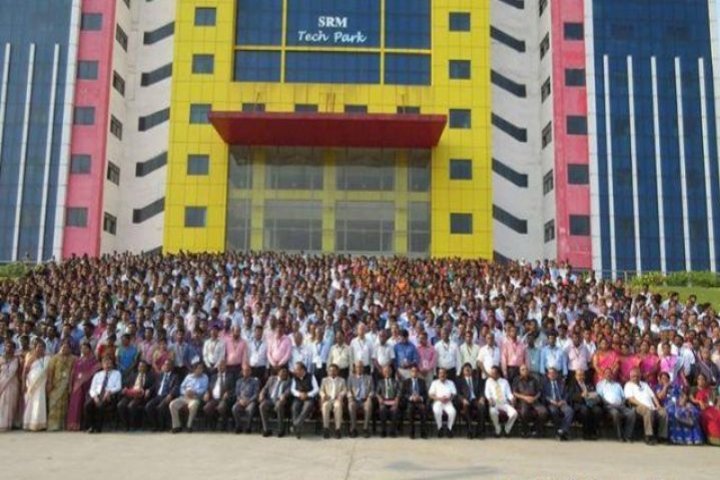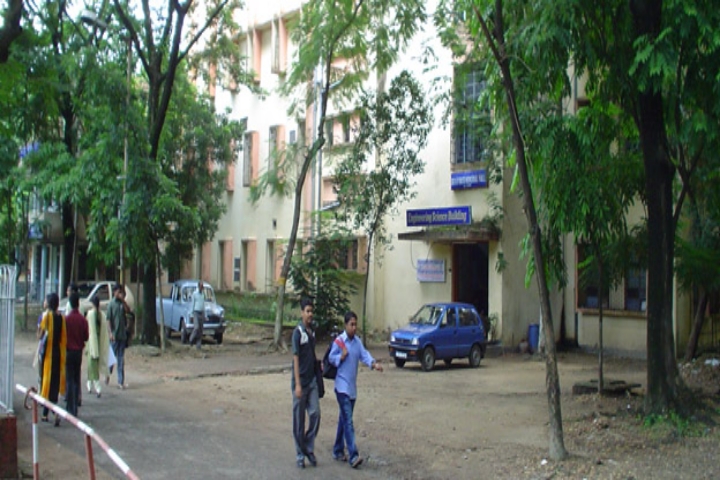
Electronics and Instrumentation Engineering Course Details - Fees, Subjects, Syllabus, Duration, Eligibility, Career Scope
Degrees offered: B.E /B.Tech, Ph.D, Diploma, M.E /M.Tech., M.Sc.
What is Electronics and Instrumentation Engineering
Electronics and Instrumentation Engineering (EIE) is a specialised branch of engineering that focuses on the design, development, and maintenance of instruments used for measuring, monitoring, and controlling industrial processes. The course combines electronics, electrical, and instrumentation principles to create efficient and automated systems in various engineering and manufacturing sectors.
The EIE course prepares students with knowledge of sensors, control systems, microprocessors, and automation technologies. It plays a vital role in power plants, chemical manufacturing, oil and gas, and healthcare equipment. The discipline bridges theoretical understanding with practical applications in modern industrial automation.
In India, several reputed engineering colleges and universities offer undergraduate and postgraduate programmes in Electronics and Instrumentation Engineering. For B.Tech admission, candidates must have studied Physics, Chemistry, and Mathematics at the 10+2 level. For MTech or postgraduate studies, a relevant bachelor’s degree with a qualifying score is required.
Electronics and Instrumentation Engineering: Highlights
Electronics and Instrumentation Engineering (EIE) is an engineering branch that combines electronics, instrumentation, and control systems to improve automation and accuracy in industrial operations. The course offers diverse career opportunities across sectors like manufacturing, power, oil and gas, and IT. Below are key highlights of the EIE course:
Particulars | Values |
Branch Name | Electronics and Instrumentation Engineering |
Degree | |
Duration | UG: 4 years PG: 2 years |
Eligibility | UG: 10+2 with Science PG: Bachelor’s degree in engineering or related discipline |
Admission Process | Admission Examination/ Direct Admission |
Top Entrance Exams | JEE Main, JEE Advanced, SRMJEEE, and GATE |
Average Course Fees | Rs. 22,000 to Rs. 25 Lakhs |
Career Options | Instrument Designer, Instrument Operator, Instrument Engineer, Procurement Manager |
Average Salary | Rs. 5 LPA |
Recruiting Companies | BPCL, NPCL, Reliance, Thermax, L&T, Accenture, Amazon, Infotech |
Specialisations or Similar Ones
Electronics and Instrumentation Engineering is a specialised branch of engineering that focuses on control systems, automation, and electronic measurement. Listed below are some of the popular specialisations and related fields similar to Electronics and Instrumentation Engineering:
Electronics and Control Engineering | |
Industrial Automation | |
Process Control | |
Biomedical Instrumentation | Robotics and Automation |
Top Private Electronics and Instrumentation Engineering Colleges in India
More than 80 private institutes offer Electronics and Instrumentation Engineering courses in India. Candidates are advised to carefully check the eligibility criteria of the course and follow the admission process. Mentioned below are the top private Electronics and Instrumentation Engineering colleges in India with their NIRF ranking:
| Top Colleges | NIRF Ranking | Fees |
|---|---|---|
11 | Rs. 25.26 Lakhs | |
14 | Rs. 11 Lakhs | |
16 | Rs. 6.92 Lakhs | |
40 | Rs. 7.53 Lakhs | |
59 | Rs. 13.64 Lakhs | |
71 | Rs. 7.14 Lakhs | |
75 | Rs. 5.38 Lakhs | |
101-150 | - | |
101-150 | Rs. 5.16 Lakhs | |
101-150 | Rs. 5.30 Lakhs |
Note: The fee structure provided above can be for any particular Electronics and Instrumental Engineering (Diploma/ Degree/PGD).
Top Government Electronics and Instrumentation Engineering Colleges in India
Around 40 government institutes are offering EIE colleges at both undergraduate and postgraduate levels. Admission to these institutes is either based on an entrance exam or direct admission based on merit score. Mentioned in the table below are the top government institutes in India offering Electronics and Instrumentation Engineering courses, along with their fees:
| Top Colleges | NIRF Ranking | Fees |
|---|---|---|
13 | Rs. 6.30 Lakhs | |
18 | Rs. 22,840 | |
28 | Rs. 3.10 Lakhs | |
50 | Rs. 5.54 Lakhs | |
88 | - | |
101-150 | Rs. 34,600 | |
101-150 | Rs. 5.57 Lakhs | |
101-150 | - | |
101-150 | Rs. 3.30 Lakhs | |
201-300 | Rs. 1.88 Lakhs |
Eligibility Criteria (UG & PG) of Electronics and Instrumentation Engineering
The eligibility for Electronics and Instrumentation Engineering varies according to the course level and the institution. Candidates must fulfil the required academic qualifications and any additional criteria set by the college or university before applying. Below is the detailed eligibility for both UG and PG programmes.
EIE Eligibility Criteria for UG Courses
For UG courses, candidates need to ensure they meet all the academic and procedural requirements of their chosen institute. Careful review of the admission process, application deadlines, and any institute-specific guidelines is essential to secure eligibility and successfully apply for the Electronics and Instrumentation Engineering undergraduate programme.
- Candidates should complete their 10+2 qualification exam from a recognised board in the science stream.
- Candidates should have passed Physics, Chemistry, and Mathematics as compulsory subjects.
- The qualification marks are generally 50 per cent aggregate, but they can also vary depending on the institute.
- They need to appear for the entrance exams. JEE Main and JEE Advanced are popular entrance examinations at the undergraduate level.
Top Entrance Exams for UG Courses
Aspirants aiming to pursue undergraduate courses in Electronics and Instrumentation Engineering must appear for various entrance examinations. These exams assess candidates’ knowledge in subjects like Physics, Chemistry, and Mathematics and play a crucial role in securing admission to reputed engineering colleges. The top entrance exams are listed below:
| Exam Name | Level | Conducting Body | Exam Schedule |
|---|---|---|---|
National | NTA | ||
National | IIT Bombay | ||
University | VIT | ||
University | SRM University | ||
State | KEA |
EIE Eligibility Criteria for PG Courses
The eligibility criteria for postgraduate courses in the field of Electronics and Instrumentation Engineering depend on the institute, but they remain almost the same for every institute. Below are the general eligibility criteria for a postgraduate course in EIE:
- Aspiring candidates must have a UG engineering degree in a related discipline from a recognised university.
- They must have a minimum of 50 per cent marks in their UG degree (it can vary across colleges).
- They need to clear the entrance examination for admission to Electronics and Instrumentation Engineering PG courses.
Top Entrance Exams for PG Courses
For postgraduate courses in Electronics and Instrumentation Engineering, candidates must appear for national and state-level entrance examinations. These exams evaluate their understanding of core engineering subjects and aptitude. Performing well in these tests is essential for securing admission into reputed universities and institutes offering M.Tech or other postgraduate programmes in this field.
| Exam Name | Level | Conducting Body | Exam Schedule |
|---|---|---|---|
National | IITs | ||
State | Sri Venkateswara University, Tirupati | - | |
State | JNTU Hyderabad | - |
College Predictors VIEW ALL
Scope of Electronics and Instrumentation Engineering in India and Abroad
Electronics and Instrumentation Engineering offers numerous career opportunities in various industries, including manufacturing, oil and gas, power plants, and healthcare. Graduates can work in design, operation, installation, and maintenance of control systems, sensors, and automation equipment, contributing to efficiency, safety, and innovation across diverse sectors.
The course also provides opportunities for further studies and research in areas such as industrial automation, robotics, embedded systems, and process control. With rapid technological advancements, EIE professionals are in demand globally, offering competitive salaries, career growth, and the chance to work on cutting-edge projects in both government and private organisations.
Course Fees Electronics and Instrumentation Engineering
| Minimum Fees | Maximum Fees | |||
|---|---|---|---|---|
| Private | Government | Private | Government | |
| UG | ||||
| PG | ||||
| DOCTORAL | ||||
| DIPLOMA | ||||
Course Subjects
The Electronics and Instrumentation Engineering curriculum at both undergraduate and postgraduate levels focuses on automation, control systems, sensors, microprocessors, and industrial process control. Students gain theoretical knowledge and practical experience through labs, projects, and research work. Below are the syllabus details for both the UG and PG programmes.
Electronics and Instrumentation Syllabus for UG Courses
The syllabus of Electronics and Instrumentation engineering depends on the institute, but it remains almost the same for every institute. Some of the subjects taught in the field of Electronics and Instrumentation Engineering at the UG level are Basic Electrical and Electronics Engineering, Computer Programming Lab, and Applied Mathematics for Instrumentation Engineers. Mentioned below is the syllabus of B.Tech in EIE from SCSVMV University.
Semester 1 | Semester 2 |
English I | English II |
Basic Mathematics for Engineering – I | Basic Mathematics for Engineering – II |
Engineering Physics | Engineering Chemistry |
Basic Electrical and Electronics Engineering | Basic Civil and Mechanical Engineering |
Computer Programming | Electric Circuit Theory |
Sanskrit and Indian Culture – I | Environmental Science and Engineering |
Engineering Graphics (Practical) | Sanskrit and Indian Culture – II |
Physics Lab | Chemistry Lab |
Computer Programming Lab | Circuit Theory Lab |
Basic Electrical Workshop | Basic Mechanical Workshop |
Semester 3 | Semester 4 |
Applied Mathematics for Instrumentation Engineers I | Applied Mathematics for Instrumentation Engineers II |
Principles of Communication | Linear Integrated Circuits |
Electronic Devices and Circuits | Industrial Instrumentation |
Sensors and Transducers | Digital Electronics |
Electrical Engineering | Signals and Systems |
Object-Oriented Programming Using C++ | Measurements and Instrumentation |
Sanskrit & Indian Culture – III | Sanskrit & Indian Culture – IV |
Soft Skills – I | Soft Skills – II |
Electronic Devices and Circuits Lab | Linear Integrated Circuits & Digital Lab |
Object-Oriented Programming Using C++ Lab | Measurements and Instrumentation Lab |
Electrical Engineering Lab | Transducer and Industrial Instruments Lab |
Semester 5 | Semester 6 |
Applied Mathematics for Instrumentation Engineers III | Operational Research |
Control Systems | Microprocessor and Microcontroller |
Power Plant Instrumentation | Process Control Instrumentation |
Digital Signal Processing | Industrial Chemical Process |
Power Electronics and Drives | Analytical Instrumentation |
Thermodynamics and Fluid Mechanics | Fibre Optics and Laser Instrumentation |
Sanskrit & Indian Culture – V | Sanskrit & Indian Culture – VI |
Soft Skills – III | Soft Skills – IV |
Thermodynamics and Fluid Mechanics Lab | Microprocessor and Microcontroller Lab |
Power Electronics and Drives Lab | Simulation Lab |
Control Systems Lab | Industrial and Process Control Lab |
Industrial Training Process | Industrial Training Process |
Semester 7 | Semester 8 |
VLSI Design | Robotics and Automation |
Embedded Systems | Biomedical Instrumentation |
Principles of Management & Professional Ethics | Elective – III |
Computer Control of Process | Elective – IV |
Elective – I | Project Work Phase II |
Elective – II | - |
Computer Control Lab | - |
Virtual Instrumentation Lab | - |
Project Work Phase I | - |
Electronics and Instrumentation Engineering Syllabus for PG Courses
The syllabus of Electronics and Instrumentation Engineering at the postgraduate level has diverse subjects such as Modern Control Systems, Industrial Electronics, Optimal Control Systems, and Stochastic Control. Mentioned below is the syllabus of the M.Tech Electronics and Instrumentation Engineering course from YMCA Faridabad.
Semester 1 | Semester 2 |
Modern Control Systems | Nonlinear Control System |
Industrial Process Control | Optimal Control System |
Industrial Electronics | Electronics Instrumentation |
Optimisation Techniques | Elective – I |
Control and Computation Lab | Advanced Microprocessor |
Modelling and Simulation Lab | Industrial Electronics Lab |
- | Seminar |
Semester 3 | Semester 4 |
Computer Control of Process | Dissertation |
ANN and Fuzzy Control | - |
Stochastic Control | - |
Elective – II | - |
Minor Project | - |
Careers in Electronics and Instrumentation Engineering
Electronics and Instrumentation Engineering opens up numerous career opportunities in both multinational companies and government organisations, offering attractive salary packages. Graduates can work in various roles, including design, operation, and management of instruments and control systems. Mentioned below are the top career options, along with their job descriptions:
| Job Profiles | Description |
|---|---|
Instrument Engineers | Instrument Engineers design, develop, and maintain instruments used for measuring and controlling industrial systems. They ensure precision, safety, and efficiency in manufacturing and automation processes. |
Electronics Engineers create, test, and supervise the production of electronic components and systems. They support innovation in automation, communication, and control technologies. | |
Procurement Managers handle the sourcing and purchasing of technical instruments and equipment. They manage budgets, negotiate with suppliers, and ensure the timely delivery of quality products. | |
Instrument Operators | Instrument Operators manage and monitor instruments to ensure accurate readings and proper system functionality. They perform calibration, maintenance, and troubleshooting of devices. |
Senior Instrument Engineers | Senior Instrument Engineers oversee complex instrumentation projects and guide engineering teams. They supervise system design, project execution, and performance optimisation. |
Instrument Commissioning Engineers | Instrument Commissioning Engineers install, test, and validate new instruments before full-scale operation. They ensure equipment meets required standards and functions efficiently in industrial setups. |
Upcoming trends
Electronics and Instrumentation Engineering is a dynamic field undergoing rapid transformation due to emerging technologies. Traditionally focused on measuring instruments and control systems, the discipline now integrates advanced innovations to enhance industrial automation, efficiency, and precision. Mentioned below are some of the current and upcoming trends in this field:
- Internet of Things (IoT) – Connecting instruments and devices for real-time monitoring and smart automation.
- Advanced Microelectronics – Development of compact, high-performance electronic components for instrumentation systems.
- Artificial Intelligence (AI) – Implementing AI for predictive maintenance, process control, and intelligent decision-making.
- Miniaturisation – Designing smaller, more efficient sensors and devices for industrial and biomedical applications.
- Energy Harvesting and Management – Developing sustainable and self-powered instrumentation solutions.
- Organic Electronics – Using organic materials for flexible, lightweight, and innovative sensors.
- Robotics and Automation – Combining advanced robotics for automated industrial processes.
- Advanced Technologies and Materials – Applying novel materials and techniques to improve accuracy, reliability, and system performance.
Job Profiles and Top Recruiters
Some of the areas where Electronics and Instrumentation Engineering graduates can work are manufacturing firms, Software Companies, Instrumentation industries, and Government sectors. Below, we have mentioned some of the top recruiters in the field of Electronics and Instrumentation engineering:
Top Recruiters:
- BPCL
- NPCL
- Reliance
- ONGC
- Emerson
- Thermax
Average Salary
The salaries for the Electronics and Instrumentation engineering course depend on the job profile, location of the company, and skills and experience of the student. Mentioned below is the average salary of popular career options in the field of Electronics and Instrumentation engineering:
| Job Profiles | Average Salary (LPA) |
|---|---|
Instrument Engineer | Rs. 6.4 LPA |
Electronics Engineer | Rs. 4.3 LPA |
Procurement Manager | Rs. 16.1 LPA |
Instrument Operator | Rs. 3.5 LPA |
Senior Instrument Engineer | Rs. 10.2 LPA |
Instrument Commissioning Engineering | Rs. 6 LPA |
Source: Ambitionbox
Required Skillset for Electronics and Instrumentation Engineering
Electronics and Instrumentation Engineering, like any technical field, demands a specific set of skills for effective performance. Candidates must develop both technical expertise and analytical abilities to excel in designing, maintaining, and managing instrumentation and control systems. Below are some key skills required in this field:
- Analytical and Problem-Solving Skills
- Strong Communication and Teamwork Abilities
- Aptitude for Electronics, Instrumentation, and Automation Technologies
- Technical Proficiency in Sensors, Microcontrollers, and Control Systems
- Attention to Detail and Precision
- Practical and Hands-on Skills
- Adaptability to Emerging Technologies
Course Curriculum for Electronics and Instrumentation Engineering
The Electronics and Instrumentation Engineering curriculum covers core subjects such as control systems, sensors, electronic devices, and industrial instrumentation. Students gain a strong foundation in mathematics, physics, and electronics while developing practical skills through laboratory work, programming, and hands-on projects, preparing them for modern industrial and research applications.
Advanced semesters focus on process control, automation, embedded systems, and industrial training. Postgraduate studies explore specialised topics like robotics, biomedical instrumentation, and microprocessors. The curriculum blends theoretical knowledge with practical exposure, ensuring students acquire the technical expertise and problem-solving abilities required for diverse career opportunities in industries and research organisations.
Popular Electronics and Instrumentation Engineering Entrance Exams in India
JEE Main
Application Process: 01 Feb, 2026 - 25 Feb, 2026
GATE
Declaration of Result: 19 Mar, 2026
JEE Advanced
Application Process: 06 Apr, 2026 - 02 May, 2026
COMEDK UGET
Application Process: 03 Feb, 2026 - 16 Mar, 2026
VITEEE
Application Process: 24 Oct, 2025 - 31 Mar, 2026
SRMJEEE
Application Process: 16 Apr, 2026
Frequently Asked Questions (FAQs)
Question: What is the difference between instrumentation and control engineering and electronics and instrumentation engineering?
Answer :
Electronics and Instrumentation Engineering is different from IC because EIE deals with electronics as well as the instrumentation part. IC deals with the control system and instrumentation field. Electronics and Instrumentation Engineering includes Embedded Systems, Control Systems Instrumentation, Biomedical Instrumentation, and Automation whereas IC includes mostly Control System, DCS, Networking, and also Security in DCS.
Question: Which is better, EIE or ECE?
Answer :
Both EIE and ECE have a good scope in today’s industrial world. ECE students get placed in software companies but EIE students have lesser chances unless they are technically skilled. However, there are not many differences between the career aspects of both branches.
Question: What are the top recruiters in Electronics and Instrumentation engineering degree programmes?
Answer :
Some of the top recruiters in the field of Electronics and Instrumentation Engineering are BPCL, NPCL, Reliance, ONGC, Emerson, and Thermax.
Question: Is a diploma in electronics and instrumentation worth it?
Answer :
A diploma can become one of the strongest foundations for higher studies if you do it correctly. With fewer practical problems, the diploma focuses more on theory. It demands strong mathematics and physics skills.
Question: Is there any scholarship for electronics and instrumentation engineering?
Answer :
Yes, irrespective of the caste of a student, scholarship is offered on a merit basis to students who want to pursue electrical and bioengineering degrees in India. All India Engineering Entrance Scholarship Examination is the way you avail your scholarship.
Question: What are the top entrance exams in the field of Electronics and Instrumentation Engineering?
Answer :
The top career options in the field of Electronics and Instrumentation Engineering are JEE Mains, JEE Advanced, and GATE, depending on the level of education.
Question: What are the career options in the field of Electronics and Instrumentation Engineering?
Answer :
The career options in the field of Electronics and Instrumentation Engineering are Electronics Engineer, Instrument Designer, Instrument Operator, Instrument Engineer, Instrument Inspector, and Procurement Manager.
Question: What is the average salary of Electronics and Instrumentation engineering graduates?
Answer :
The average salary of an Electronics and Instrumentation engineer depends on the skills and expertise of the candidate. The average salary of an Instrument Engineer, according to AmbitionBox, is Rs. 6.4 LPA.
Question: What are some of the subjects taught in the Electronics and Instrumentation Engineering course?
Answer :
The subjects taught in the Electronics and Instrumentation Engineering course are Industrial Electronics, Optimisation Techniques, Nonlinear Control Systems, Electronics Instrumentation, and Stochastic Control.






















